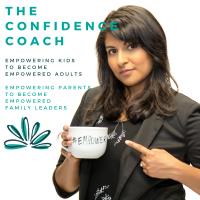View this post on Instagram
The experiences we have create our reality, but we can create our own reality by choosing to have certain experiences.
Today, I was listening to a lecture by Dr. Bryan Kolb, PhD, from the University of Lethbridge. He is a neuroscientist, and I’d love to share some information.
Disclaimer: neuroscience is a broad and complex topic, hence it’s important not to compartmentalize one action of the brain/body as independent of the rest of the brain/body. Our mind and our body are directly connected.
I share this information at the risk of oversimplifying but to provide some basic insight.
Genes carry information that determine our traits: mental, physical, emotional predispositions, predispositions for certain behaviors, and even predispositions for illness. Each cell in the human body carries tens of thousands of genes.
Experiences we have turn genes on or off—this is called epigenetics. Epigenetics is the expressions of our genes, activated or not activated, based on the experiences we have.
Some genes are not always on or activated. Some are on, some are off. Activated or suppressed.
Before a child is conceived, a parent may have some genes that are turned off. If you are conceived at a time where certain genes are “off,” you can inherit those off genes. If you somehow—through behavior and mental or emotional modifications and life experiences—turn on those genes in your lifetime, you have a possibility of passing those on genes to your offspring.
Essentially, this means despite the genes you are born with, you can rise above your genes.
You can—through awareness, education, and intervention—create your own reality. You are not doomed to whatever you were born with or without: more specifically in the areas of mental, emotional, character, skills, patterns, or habits.
You can overcome your self-perceived hurdles.
So, if the genes that result in empathic behaviors are turned off when I am conceived, I may not be an empathic person by nature. But then, if during my lifetime I learn about and practice genuine empathy, frequently and consistently, and become a highly empathic person, it’s possible at the time of conception of my own child those empathic behavior producing genes will be turned on, and it’s likely I will transfer those empathic behavior creating genes to my child.
If I am a child born into a long, suffering line of men and women who did not know how to be empathic, I can create a change in intergenerational patterns through conscious choice and action.
You’ve heard the phrase, “You can be a catalyst for change…”
But, you’ve got to do the work to turn on those patterns now and practice them so consistently that they become your nature.
What if your child is already here on planet Earth?
What do you do then?
You both work harder on bringing into your life the exact traits, behaviors, thoughts, and patterns you want that will allow you to activate those genes and create intergenerational change. And, of course, bring about change in the ways you want in your life.
When it comes to the mind, mindset, character traits, or habits, this is no easy feat. This takes knowledge, practice, massive levels of bravery, and action. More often than not, you’ll need support, love, a safe space, and a coach, guide, or mentor.
I believe in you.
I am living proof of someone who is rising above. And I love the journey, even with its ups and downs, twists and turns, tears and triumphs.
After getting to know the story of my biological mother, who took her life when I was a baby, it is likely the genes that activate traits of self-love, self-nurturing, self-worth, and healthy self-esteem were in the off position when I was conceived. Hence, I would have inherited the off genes.
Here’s the clincher, if my early childhood experiences were supportive, healthy, and growth-inducing versus unsupportive, unhealthy, and shame, blame, or guilt-inducing, I would have had a strong chance to overcome any of the inherited traits that limited me.
But that was not the case for many of my early childhood experiences, unfortunately. Many of my experiences only further suppressed the self-worth, self-love, and self-nurturing behavior producing genes and traits.
“This what we knew. This is how we were raised,” is a common answer among our parents and grandparents today. It’s what the adults around us who influenced our childhood inherited and what they were taught to do with their learned behaviors.
If, though, our parents and other adults chose to stray from the norms and expectations of the past and forge into parenting their children with deep levels of spiritual connection, empathy and understanding, and immense playfulness and joy, these off genes we might have inherited can be turned on.
When they say you are a product of your environment, this means in more ways than one. It refers to the actual physical and biological conditions within which you were conceived, the environment where you were raised, and the environment you now experience as an adult.
Here’s the main contributing factor to your life as it stands today: choice.
Now that you know you do not need to attach yourself to the way you were raised, and you can take conscious efforts to shift your parenting to change intergenerational patterns, will you do what it takes?
Will you choose to rise above?
Will you be one of those courageous men or women who interrupt intergenerational patterns?
It starts with us.
I am on the path to interrupt limiting—and dare I say—harmful intergenerational patterns.
I am with you.
I am here to support you.
Please reach out if you resonated with what I shared here.
Lots of love and light to you.
Yours in confidence,
The Confidence Coach, Ashley Anjlien Kumar
~








Read 1 comment and reply